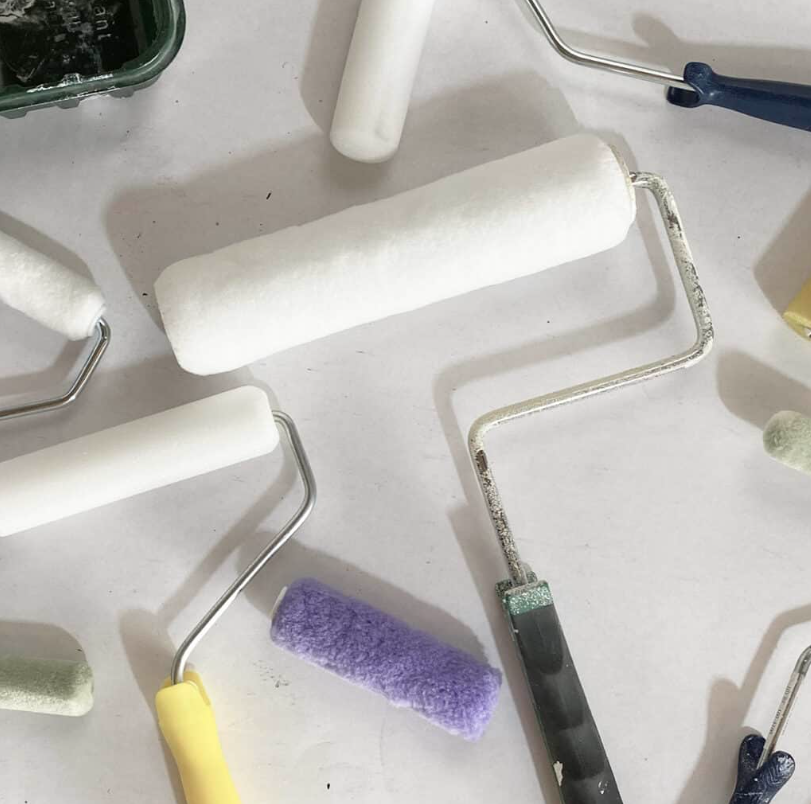How Often Should You Change Your Paint Roller?
Picture this: You've decided to give your living room a fresh coat of paint, and you're armed with your trusty paint roller. But wait, how do you know if it's time to retire that old roller or if it can still serve you well? In this article, we'll unravel the mystery of paint rollers' lifespan, exploring how often you should change them, and why it matters for a flawless painting job.
The Roller That Stood the Test of Time
A few years ago, I embarked on a painting project to revamp my bedroom. I reached for the same paint roller I'd used on previous projects, thinking it could handle one more job. As I rolled on the paint, I noticed streaks and uneven coverage, leaving me frustrated and dissatisfied with the result. It was a lesson learned the hard way: paint rollers have a limited lifespan, and knowing when to change them is crucial for achieving a smooth and professional finish.

Section 1: Signs It's Time to Bid Adieu
1. Uneven Application
If you notice that your paint roller isn't spreading the paint evenly or leaves streaks behind, it's a clear indicator that it's past its prime. Uneven application can lead to an unsightly finish, requiring more coats and extra effort to fix.
2. Shedding Fibers
Imagine finding tiny paint roller fibers embedded in your freshly painted wall—it's not a pleasant sight. When your roller starts shedding fibers, it's a sure sign that it's time for retirement. These loose fibers can ruin your paint job and create an extra cleanup headache.
3. Reduced Absorption
An efficient paint roller should hold an adequate amount of paint for smooth coverage. If you find that your roller is struggling to absorb and release paint effectively, it's a telltale sign of wear and tear.
Section 2: Factors Influencing Roller Lifespan
1. Frequency of Use
The more you use your paint roller, the faster it will wear out. Frequent painting projects may require more frequent roller replacements.
2. Paint Type
Different types of paint can have varying effects on roller lifespan. For instance, abrasive or textured paints can cause more wear and tear compared to smooth, latex-based paints.
3. Roller Quality
Investing in a high-quality roller can extend its lifespan. Cheaper, low-quality rollers tend to wear out faster and may not deliver the best results.
Section 3: How Often Should You Change Your Paint Roller?
So, how often should you bid farewell to your trusty paint roller? Here's a practical guideline:
1. Between Every Project
For optimal results, consider changing your paint roller between every painting project. Fresh rollers ensure consistent coverage and save you from potential headaches caused by worn-out rollers.
2. When You Notice Signs of Wear
Pay attention to the signs we discussed earlier—uneven application, shedding fibers, and reduced paint absorption. If any of these issues arise, don't hesitate to replace your roller.
Section 4: A Picture-Perfect Paint Job
The Art of Knowing When to Roll On and Roll Out
In the world of painting, achieving a flawless finish is an art. Your choice of paint roller and knowing when to replace it are pivotal to this process. In essence, it's about recognizing the signs of wear and tear, understanding the factors that influence roller lifespan, and taking proactive steps to ensure your painting projects are nothing short of perfection.
Roll with Confidence
As you embark on your next painting endeavor, remember that your trusty paint roller is a crucial ally. Don't compromise on the quality of your finish—change your roller between projects and at the first signs of wear. Your walls will thank you with a smooth, streak-free, and stunning finish.
Don't Let Your Roller Wear You Down
So, the next time you pick up your paint roller, ask yourself, "Is it time for a change?" Because in the world of painting, a fresh roller is the key to a picture-perfect result. Happy painting!


